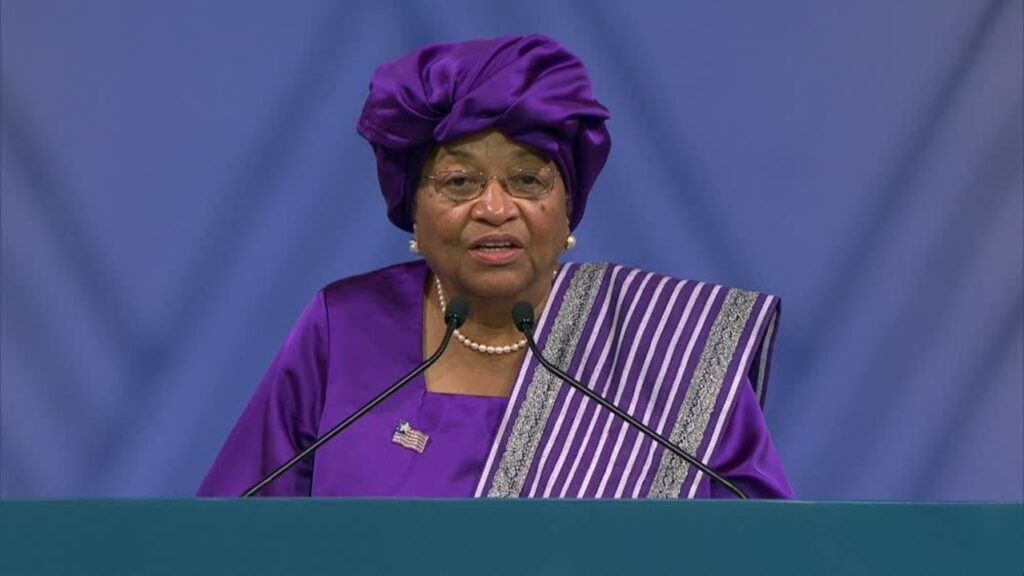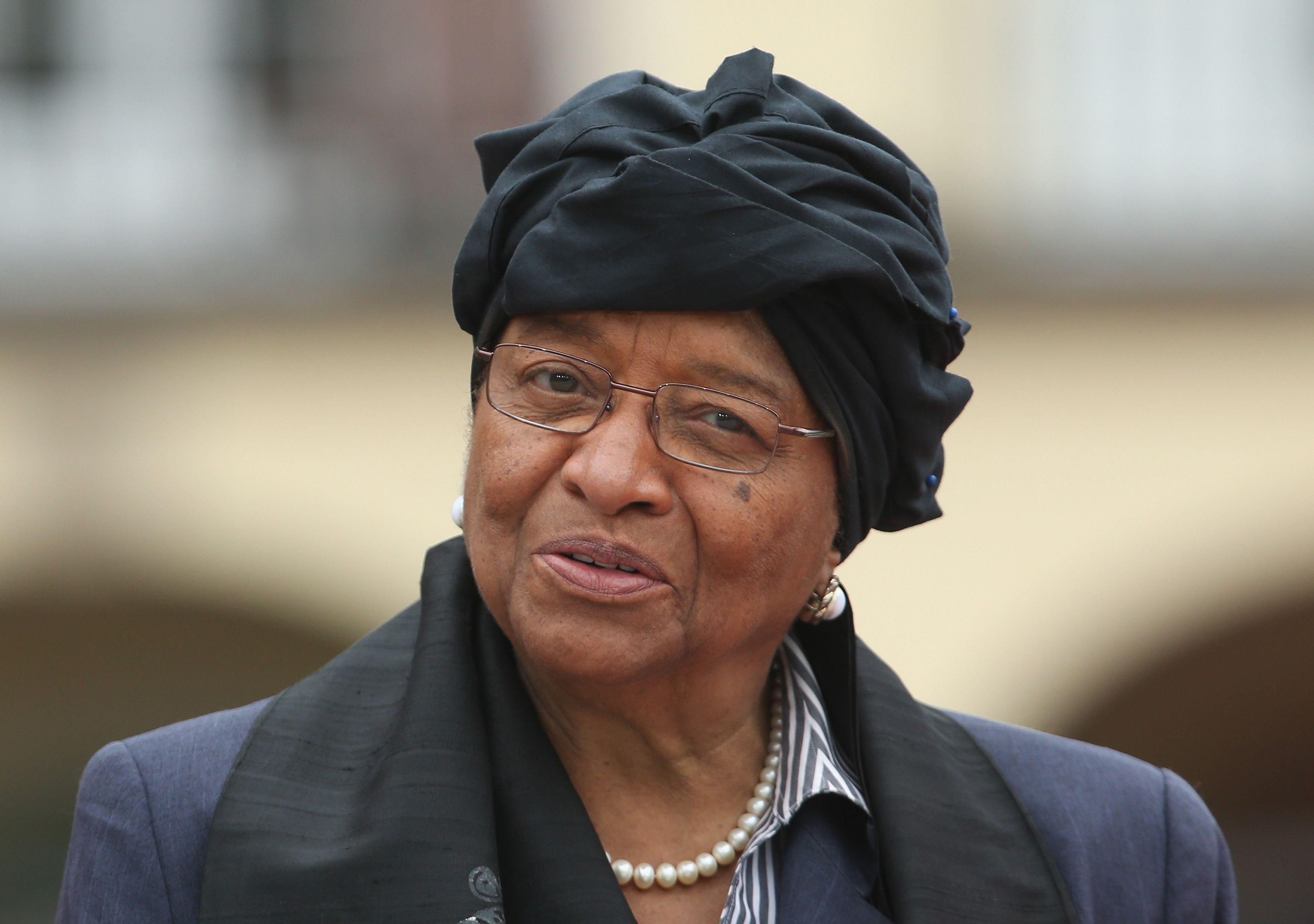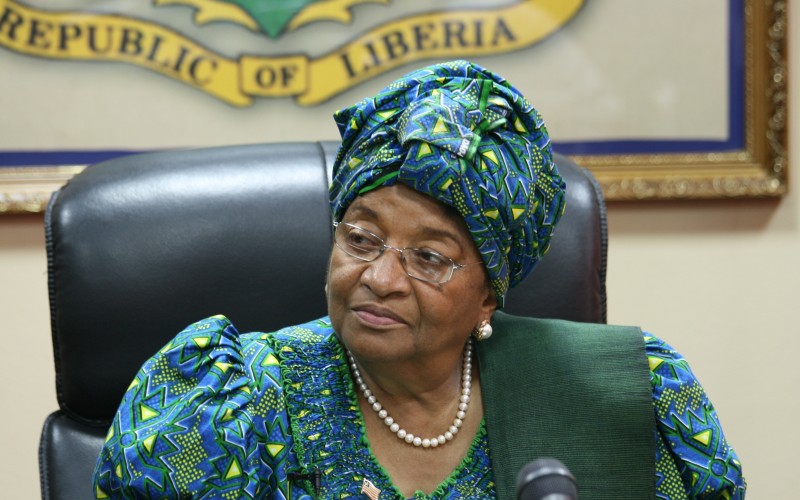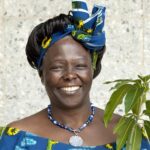Ellen Johnson Sirleaf is a Liberian politician who served as the 24th president of Liberia from 2006 to 2018 and the first elected Female President In Africa. She was also elected as the Chair of the Economic Community of West African States in 2016, making her the first woman to hold the position since it was created. She won the Nobel Peace Prize in 2011, recognizing her efforts to bring women into the peacekeeping process, and has received numerous other awards for her leadership. Here is the story of Ellen Johnson Sirleaf, Africa’s Iron Lady, and how she became the first female president in Africa.
Early Life and Education
Ellen Johnson Sirleaf was born in Monrovia, Liberia in 1938. Her Father was Jahmale Carney Johnson and her Mother was Juah Sarwee. She attended the College of West Africa, a preparatory school, from 1948 to 1955. Ellen married James Sirleaf when she was seventeen years old. The couple had four sons together, and she was primarily occupied as a homemaker. Early in their marriage, James worked for the Department of Agriculture, and Ellen was a bookkeeper for an auto-repair shop.
Ellen traveled with her husband to the United States to continue her education in 1961. She earned an associate degree in Accounting at Madison Business College, in Madison, Wisconsin. The couple returned to Liberia, James continued his work in the Agriculture Department and Sirleaf pursued a career in the Treasury Department (Ministry of Finance). They however got divorced in the same year due to the Husband’s abuse.
After the divorce, Ellen returned to college to finish her bachelor’s degree. In 1970, she earned a BA in economics from the Economics Institute of the University of Colorado Boulder, where she also spent a summer preparing for graduate studies. She also studied economics and public policy at Harvard Kennedy School from 1969 to 1971, earning a Master of Public Administration.
Career
Ellen Johnson Sirleaf returned to Liberia to work in the administration of William Tolbert, the 20th president of Liberia. She was appointed as Assistant Minister of Finance. She served in the position from 1972 to 1973 but resigned after a disagreement about government spending. Subsequently, she was appointed as Minister of Finance a few years later, serving from 1979 to April 1980, when the democratic government was toppled in a military coup.
The Military government led by Samuel Doe and The People’s Redemption Council took control of the country and led a purge against the previous government. They offered Ellen a post in the new government as the President of the Liberian Bank for Development and Investment. She initially accepted the offer but fled the country in November 1980 after publicly criticizing Doe and the People’s Redemption Council for their management of the country.
Ellen initially moved to Washington, D.C., and worked for the World Bank. She however moved to Nairobi, Kenya in 1981, to serve as Vice President of the African Regional Office of Citibank. She resigned from Citibank in 1985 following her involvement in the 1985 general election in Liberia and went to work for Equator Bank. In 1992, Ellen was appointed director of the United Nations Development Programme’s Regional Bureau for Africa.
During her time at the UN, she was one of the seven internationally eminent persons designated in 1999 by the Organization of African Unity to investigate the Rwandan genocide, one of the five Commission Chairs for the Inter-Congolese Dialogue, and one of the two international experts selected by UNIFEM to investigate the effect of conflict on women and women’s roles in peacebuilding.
Read More:
- Vigdis Finnbogadottir: First Female President In The World
- Constance Markievicz: The First Woman Elected Into The British Parliament
- Dr. Mary Walker: The Only Woman To Receive The Medal of Honor
Political Career
Prior to her appointment at the UN, Ellen Johnson Sirleaf returned to Liberia in 1985 to run for Vice President under Jackson Doe on the ticket of the Liberian Action Party in the 1985 elections. However, She was placed under house arrest and sentenced to ten years in prison for sedition, as a consequence of her criticism of the Samuel Doe regime. Following international calls for her release, she was pardoned and released but was removed from the presidential ticket. She instead ran for a Senate seat in Montserrado County.
Samuel Doe and the National Democratic Party won the presidency and large majorities in legislature on the elections that were widely condemned for irregularities. Although Ellen won her senetorial position, she refused to accept the seat in protest of the election fraud. After an attempted coup against the Doe government in November 1985, Ellen was arrested and imprisoned again by Doe’s forces. She was however released in July 1986 and fled the country to the United States.
Ellen resigned from her role in the United Nations in 1997 to run for the presidency of Liberia. She ran as the presidential candidate for the Unity Party and placed second in the controversial election. Following controversy about the results and being accused of treason, She left Liberia and went into exile in Abidjan, Ivory Coast. Ellen returned and contested again the 2005 general election, where placed second in the first round of voting behind George Weah, and eventually won in the subsequent run-off election. On 23 November 2005, Ellen was declared the winner of the Liberian election and confirmed as the country’s next president and the first woman to be elected as president of an African country.
Presidency
Following her victory in the 2005 election, Ellen promoted national reconciliation by bringing in opposition leaders into her administration. She also appointed several women to high-level posts in her administration, with female ministers initially leading the Ministries of Finance, Law, Commerce and Industry, Gender and Development, and Youth and Sports
Upon her inauguration, Ellen promised that she would impose a “zero tolerance” policy on corruption within the government. Despite this, critics have argued that corruption remains rampant within Sirleaf’s administration. Sirleaf herself has acknowledged that corruption in government remains, noting that her zero tolerance policy was hampered by the need to pass major economic reforms through the Legislature. She however rejected claims that she has failed to fight corruption, pointing to the establishment of the Liberian Anti-Corruption Commission and the restructuring of the General Auditing Commission
From the beginning of her presidency, Ellen vowed to make reduction of the national debt, which stood at approximately US$4.9 billion in 2006, a top priority for her administration. With the assistance of the United States, G8, World Bank, IMF and Paris Club, She was able to write off and pay off all of Liberia’s external debt by June 2010. She also forged close relations with the United States and strengthened relations with the People’s Republic of China.
On 4th, October 2010, Ellen signed into law a Freedom of Information bill, the first legislation of its kind in West Africa. Ellen recontested in the 2011 presidential election, Opposition leaders noted that she had broken a promise made during her 2005 campaign to only serve one term if elected. She won the election after gathering , 90.7% of the total vote in the second round. She took the presidential oath for her second presidency on 16 January 2012, ruling the country until the 2018 General election.
Honours and Post Presidency
In recognition of signing the Freedom of Information bill, Ellen Johnson Sirleaf became the first sitting head of state to receive the Friend of the Media in Africa Award from The African Editor’s Union. In 2011, Sirleaf was jointly awarded the Nobel Peace Prize with Leymah Gbowee of Liberia and Tawakkol Karman of Yemen. The three women were recognized “for their non-violent struggle for the safety of women and for women’s rights to full participation in peace-building work.”
Forbes magazine ranked Ellen as the 51st most powerful woman in the world in 2006. In 2010, Newsweek listed her as one of the ten best leaders in the world, while Time counted her among the top ten female leaders. That same year, The Economist called her “arguably the best president the country has ever had. She also was conferred the Indira Gandhi Prize by Indian President Pranab Mukherjee on 12 September 2013.
After Presidency In 2018, Johnson Sirleaf founded the Ellen Johnson Sirleaf Presidential Center for Women and Development. In 2019, Director-General of the World Health Organization Tedros Adhanom appointed Johnson Sirleaf as the WHO Goodwill Ambassador for the health workforce. Amid the COVID-19 pandemic in 2020, she stepped down from this post to serve as co-chair (alongside Helen Clark) of the WHO’s Independent Panel for Pandemic Preparedness and Response (IPPR). Also in 2020, she was appointed to the Development Advisory Council of the U.S. International Development Finance Corporation.




